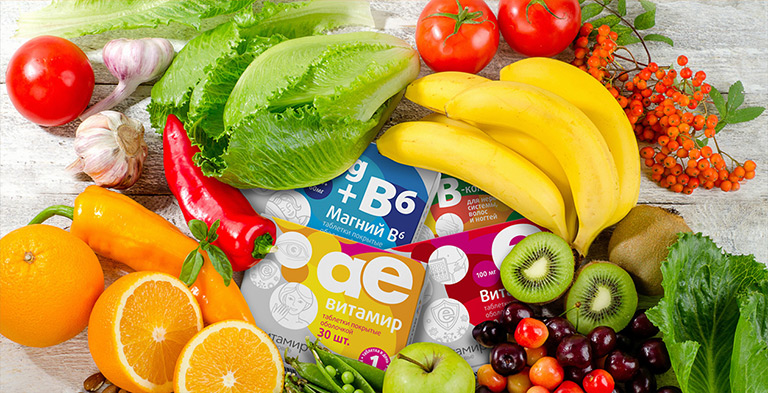Vitamin Boost: Why It's Important to Consume Vitamins and Supplements to Support Immunity

Vitamins and Immunity: How to Boost Your Immune System
Many body functions, including immunity, suffer when vitamins are deficient. Adjusting your diet or taking supplements supplies your body with the nutrients it needs to keep your immune system strong. In this article, we'll explore key vitamins and micronutrients that support immunity.
Why Immunity Matters
Immunity isn't just about fighting infections—it also destroys cancer cells and prevents autoimmune reactions. Adequate vitamin D, for example, lowers the risk of autoimmune issues.
Strong immunity means:
- Fewer and milder illnesses
- Faster recovery
- Subclinical infections you barely notice
- No flare‑ups of chronic infections
Symptoms like severe flu, frequent colds, recurrent herpes, or thrush often signal weakened immunity—especially after winter vitamin depletion.
While healthy habits (exercise, balanced diet, weight management, avoiding harmful substances) are vital, ensuring you get essential vitamins is equally important.
Can Vitamins Boost Immunity?
Vitamins and minerals regulate immune responses. Antioxidants reduce free‑radical damage and support T‑cell production. Deficiencies impair the creation of immune cells and molecules, weakening defenses. Research highlights vitamins C, D, and zinc as particularly effective at enhancing immune function.
Key Nutrients for a Strong Immune System
The most critical nutrients include:
- Vitamins: A, B complex, C, D, E, β‑carotene
- Micronutrients: selenium, zinc, iron
- Vitamin‑like compounds: choline, carnitine, inositol, coenzyme Q
Vitamins C and D and zinc have the strongest evidence for reducing infection risk.
How Vitamins Support Immunity
Because the body cannot produce sufficient vitamins, they must come from diet or supplements. Their immune roles include:
- Vitamin A: Regulates interleukin‑2 and TNF‑α to activate macrophages.
- Vitamin D: Lowers pro‑inflammatory cytokines and raises anti‑inflammatory cytokines.
- Vitamin E: Reduces immunosuppressive prostaglandin E2.
- Vitamin C: Modulates cytokine production and lowers histamine.
- Vitamin B6: Supports over 150 enzymatic reactions and controls inflammation.
- Iron: Modulates inflammation via transcription factors.
- Zinc: Acts as an anti‑inflammatory agent.
- Copper: Supports interleukin‑2 function at inflammation sites.
These actions help control chronic infections, enhance resistance to acute infections, and speed recovery.
Who Benefits from Vitamin Supplementation?
Children, adults, the elderly, and pregnant women (except for vitamin A in early pregnancy) can all benefit from correcting deficiencies. Supplements only restore normal function when a deficiency is present—they won’t boost immunity beyond healthy levels in well‑nourished individuals.
Recommended Immune‑Supporting Products
- Vitamix for Immune System: Vitamin C, rutin, zinc, selenium, beta‑glucan, echinacea extract. One capsule daily reduces infection risk.
- B‑Complex + Folic Acid: Full B‑vitamin spectrum for immune and oncological health. One tablet daily meets needs.
-
Children’s options:
- Baby Formula Lozenges: Vitamins C, E, zinc, sea buckthorn, elderberry; ages 3+. No additives.
- Jutavit Children’s Multivitamins: A, C, D, B6, B12, folic acid, iodine, zinc; chewable for ages 3+.
Other Immune‑Boosting Products
- Immunity Grain Mix: Rich in vitamin C and omega‑3s; supports digestion and cardiovascular health.
- Lekraset Herbal Blend: Rhodiola, badan, licorice, rosehip, thyme; brew as tea to boost immunity and mood.
- Tian Shan Mumijo: Humic acids source for overall immune support.
FAQs: Vitamins and Immunity
- What are vitamins?
- Essential compounds for biochemical reactions and overall health.
- What are multivitamins?
- Supplements containing multiple vitamins in a single formula.
- How do vitamins support immunity?
- They regulate enzyme activity, antioxidant protection, cell production, and cytokine balance.
- What specific benefits do vitamins offer?
-
- A: Vision, immunity, growth; prevents night blindness.
- B1: Metabolism; prevents beriberi.
- B2: Red blood cell and antibody production.
- PP (B3): Metabolism; prevents pellagra.
- B5: Synthesis of hemoglobin, cholesterol, histamine.
- B6: Nervous system and immune support.
- H (B7): Hair, skin health, glucose metabolism.
- Folic Acid: DNA synthesis; prevents anemia.
- B12: Protein/fat metabolism; prevents anemia.
- C: Antioxidant, collagen formation; prevents scurvy.
- D: Bone health, immunity; prevents rickets/osteoporosis.
- E: Antioxidant; protects cells and skin.
- K: Blood clotting.

 Eesti
Eesti Latviski
Latviski Lietuvių
Lietuvių Suomi
Suomi Русский
Русский